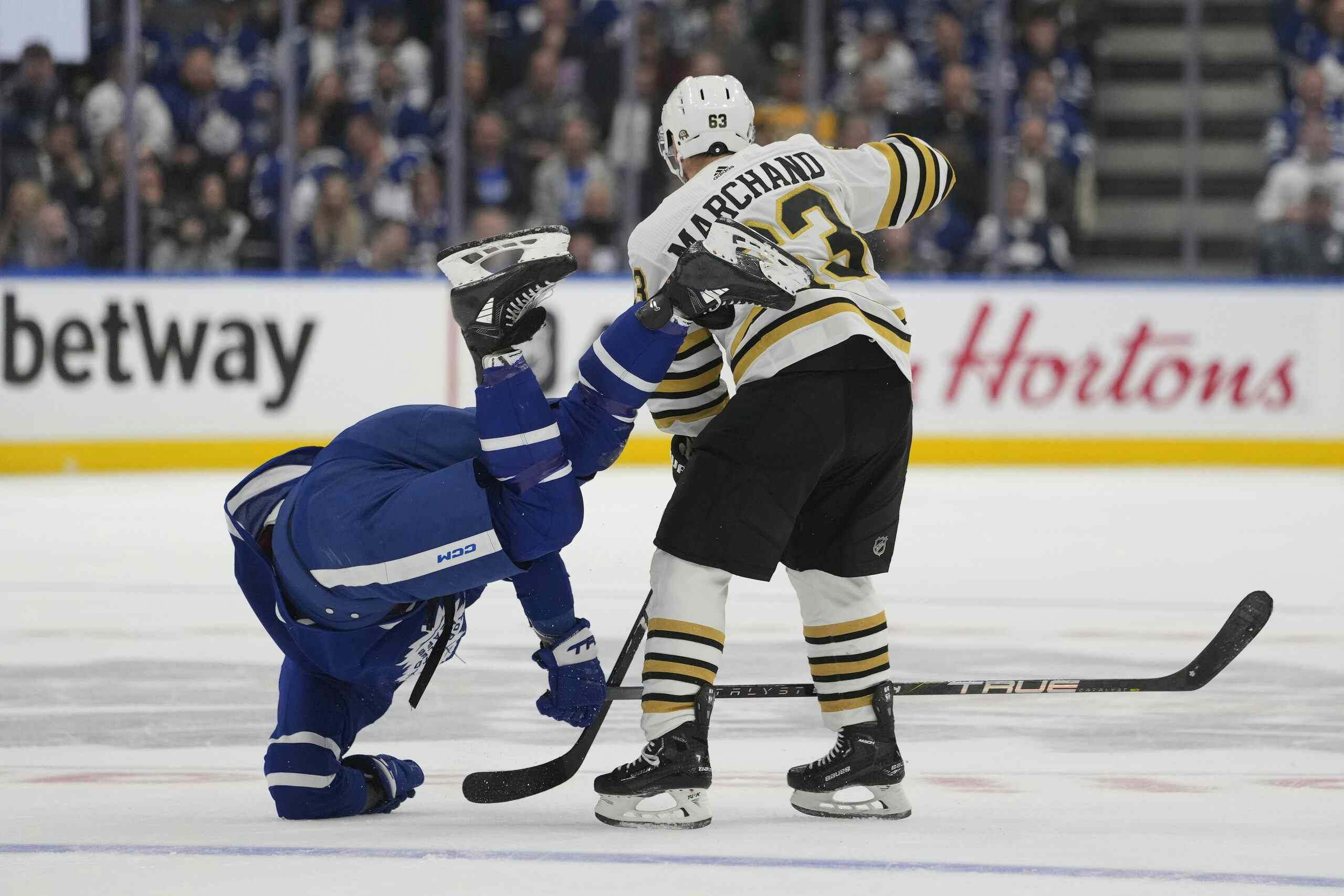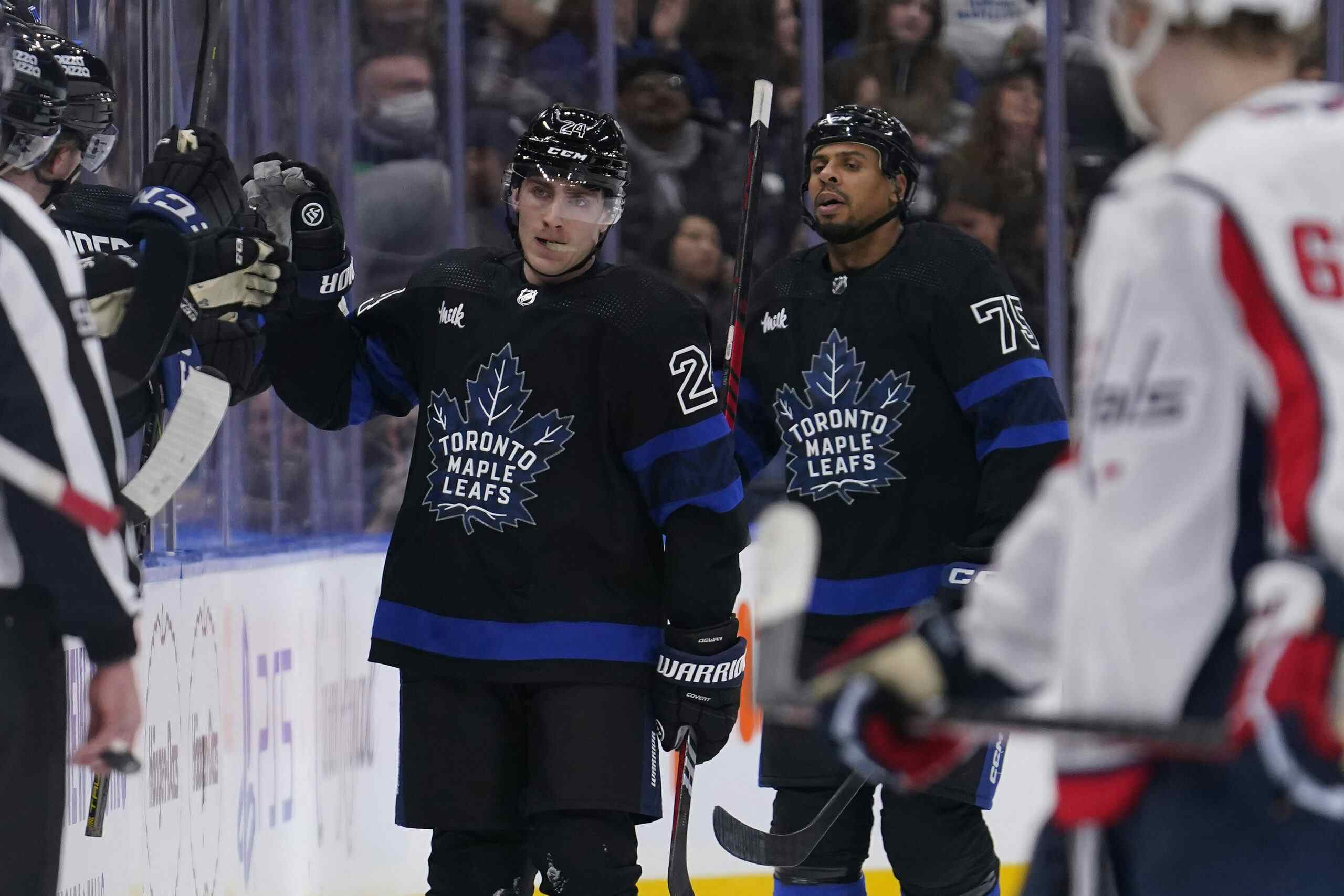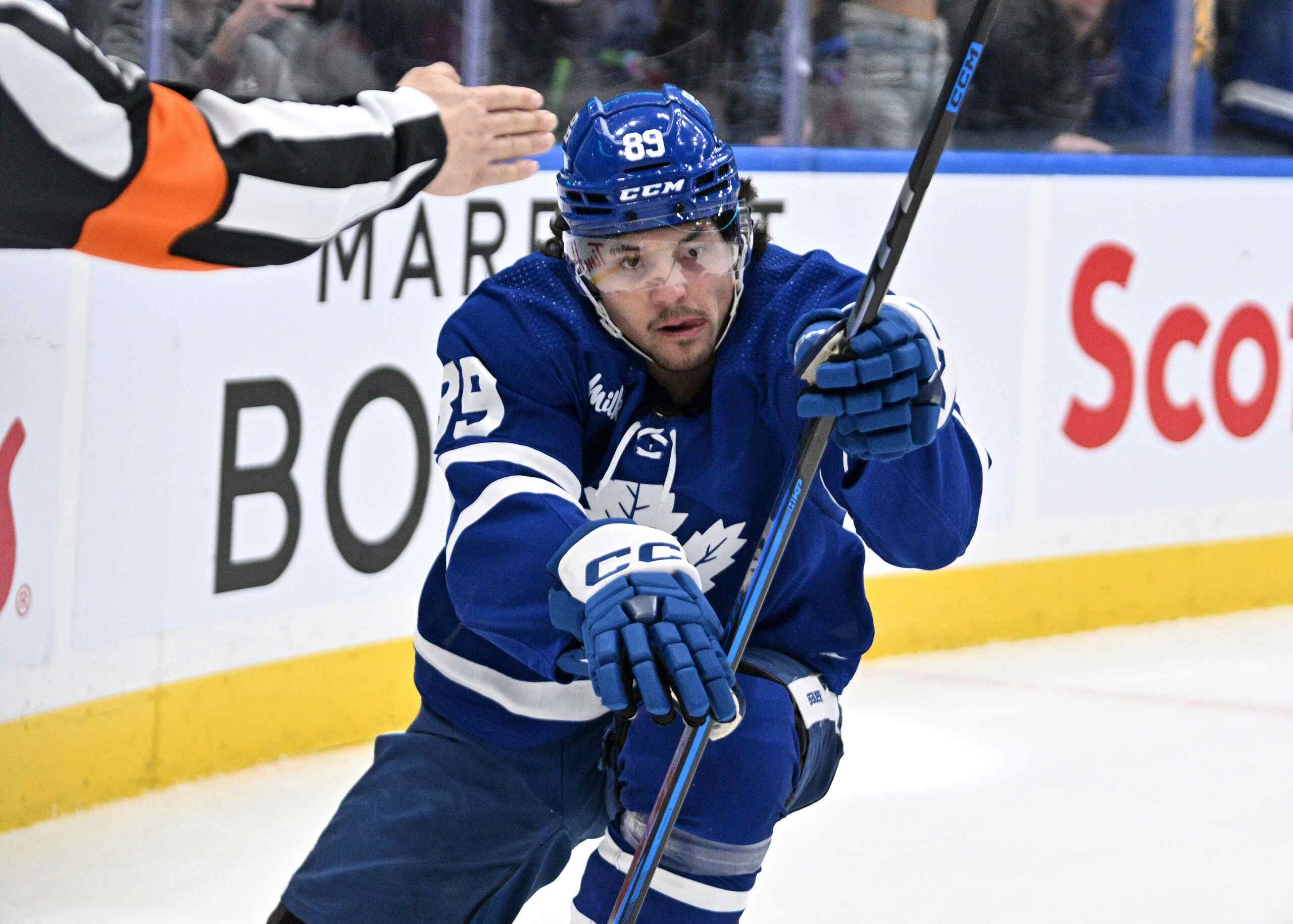If this is the end for James Reimer in Toronto, it was a heck of a run

Photo Credit: Candice Ward/USA TODAY SPORTS
On a cold, harsh New Years Day in 2011, young James Reimer stole the Toronto Maple Leafs’ net from Jean-Sebastien Giguere and Jonas Gustavsson and refused to give it back. That wasn’t the Leafs’ plan; many had the 22-year-old as a longshot to make the NHL for more than the odd emergency call up. But he proved them wrong.
Night after night, the kid would stand on his head, steal games, and steal the hearts of the fanbase. He pulled the Leafs out of the gutter in a year where they didn’t have the draft picks to make it worth staying there. He gave the games meaning. He almost pulled the Leafs into the playoff picture, and created hope that things would get better in Toronto. He finished the season he wasn’t meant to play with the second-best single-season save percentage in Leafs history.
Unfortunately, while he could stop pucks with the best of them, he wasn’t able to stop opponents from getting frustrated and overstepping their boundaries. While expectations were high for his second season, a collision with Brian Gionta took him out of the lineup. “He could’ve finished the game, but this early in the season we didn’t want to risk it.” were the words of Ron Wilson when it happened, calling it just whiplash.
As it turns out, it was more than just whiplash. Reimer had concussions in the past, but this was his first at the NHL level. Forever the soldier, he rushed himself back into the lineup quicker than he should’ve, playing approximately 30 games until his symptoms began to go away.
Thankfully, the 2012/13 NHL Lockout gave him some time to recover. Once he did, “Optimus Reim saves the City of Toronto, Part 2” began.
Once again, Reimer was Plan B – Dave Nonis failed twice to acquire Roberto Luongo from Vancouver. But he defied the odds and dragged one of the worst possession teams in hockey into their first playoff berth in nearly a decade. But after a ten-minute stretch that Leafs fans must never speak of, management once again wanted something more.
In came Jonathan Bernier. Reimer was promised competition, but it was obvious that Bernier was to be given the starting job. Even still, he came to work every day and kept playing like the 0.920+ goaltender he usually is when he’s healthy. But one night against the LA Kings, with Bernier already removed from the lineup with an injury, in came Jarret Stoll. The Kings forward inadvertently kicked Reimer in the head, but with Bernier already out and the alternative being Colton Orr putting on pads, Reimer stayed in.
Later that night, he claimed his “bell was rung”, but that he would be okay. He played another handful of games in a valiant attempt to finish the year in favour but looked shaky in most of them. History repeated itself, and the team still wanted to go with their newer, more hyped goaltender in Bernier. In love with the city but unhappy with the situation, Reimer requested a trade.
The Leafs couldn’t find one that they felt was fair, but rather than hold out, Reimer kept playing. In fact, in a show of good faith, the team avoided arbitration by offering him a two-year deal. With that said, 2014/15 was a rocky season for both him and Bernier, as both posted below league average numbers and came in and out with lower body injuries in a year many would like to forget.
Which brings us to this year. The Leafs had a vastly different management group and coaching staff from the point that Reimer wanted to get away from. It was a transition year where those performed well would either become part of the long-term picture or be moved to teams closer to success. Reimer, now healthy, had one more chance to prove his worth in a year where success considered Plan B. Well..
Once again, Optimus stepped up to the occasion. In his first 26 games, Reimer was arguably the league’s best goaltender, bringing his save percentage to the top of the charts. A mixture of good health, high confidence, a change in style, and an improved system that that moved the opponent’s shots to areas he was best at protecting made him into a hot commodity in the city for the third time in his career.
Unfortunately, the last few weeks haven’t been as nice to him; he hasn’t had a night above 0.900 since February 4th. That’s likely why when the Sharks came calling, they weren’t willing to go all in with a blockbuster offer, instead opting for a fourth round pick that gets better as San Jose muscles through the playoffs.
Was it a great return? Not really. But It was one that signified the reality of Toronto’s situation. It was one that showed that they’re in the business of following their brains rather than their hearts; having no mercy, no remorse, and no hesitation if they believe a move will help them win in the long run. The pick isn’t high; but with the right department, can become a quality player. The players they’re getting back are nothing special,b ut come off the cap sooner than later. The goalie market was weak, and with Jonathan Bernier having a longer deal with weaker performances to match it, it was unlikely he was going anywhere.
If it trade one or the other situation, Reimer was probably Plan B once again. But it’s very likely that he was the only goalie that people had an interest in, and this was the best they could do given the circumstances. Besides, this doesn’t have to be the end for him; maybe he sees that the grass isn’t greener elsewhere and, come July, goes back to a land of familiarity and newfound hope.
Even if he doesn’t, though, James Reimer will eventually be looked back at as one of the most underrated goaltenders in the history of the Leafs. Through the peaks and valleys, he leaves the team tenth all-time in Games Played and Wins. While save percentage tends to favour the new generation, it doesn’t change the fact that his is the highest of any regular Leafs goalie in team history. He ranks 14th in shutouts, and according to Hockey Reference’s “Point Share” algorithm, ranks 7th all time in positive impact on the Leafs’ position in the standings.
More than the numbers, it takes a special kind of human being to put the entire city on your back once, let alone multiple times. He did it as a rookie, he did it to snap a playoff drought, and he did it to give excitement to a season of expected pain. For better or worse, he risked his well-being to get on the ice when he probably shouldn’t have. To top it all off, when things went bad, Reimer was always there to answer the call, with a smile on his face and unwavering faith that things would turn back around. In that respect, he was an encapsulation of the fanbase; a rollercoaster of glory and heartbreak that somehow kept hope.
Not bad for a goalie that wasn’t expected to be around for more than a couple of games. Not bad at all.
Recent articles from Jeff Veillette





